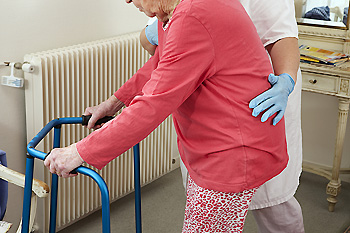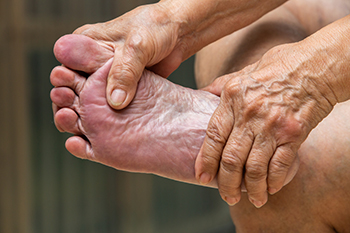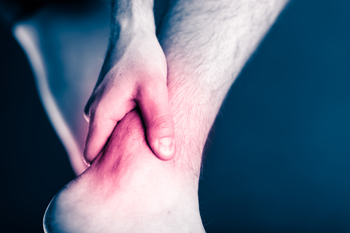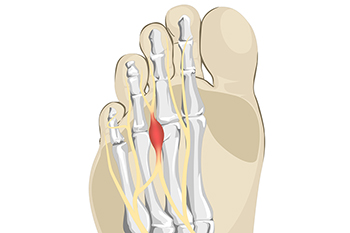Ainsley Roberson Rusevlyan, DPM
(252) 946-1181Washington, NC

Suffering from a fall as a senior citizen is no joke. As an individual ages, they become more prone to tumbling and tripping both inside and outside of their home. These falls can be life-threatening and may occur on staircases or hard, dangerous surfaces. Although falls may happen for any number of reasons, the health of a senior’s feet can be an influential factor. Therefore, one way to prevent falls from occurring in senior citizens is to strengthen the feet by practicing several simple exercises. These exercises can improve the strength in the senior’s feet muscles and increase balance. One such exercise is known as leg extensions and can be performed by repeatedly extending and raising one leg at a time while sitting in a chair. You can alternate the legs after each extension. The purpose of this exercise is to increase strength and agility in the leg muscles. If stretching seems boring or unappealing, a senior might also try to improve the strength of their feet by walking, practicing tai chi, or performing simple movements in the pool. If you are a senior who is concerned about their likelihood of suffering from a fall, you can contact a podiatrist for more information about strength-building exercises.
Preventing falls among the elderly is very important. If you are older and have fallen or fear that you are prone to falling, consult with Ainsley Rusevlyan, DPM from InStride Roberson Footcare. Our doctor will assess your condition and provide you with quality advice and care.
Every 11 seconds, an elderly American is being treated in an emergency room for a fall related injury. Falls are the leading cause of head and hip injuries for those 65 and older. Due to decreases in strength, balance, senses, and lack of awareness, elderly persons are very susceptible to falling. Thankfully, there are a number of things older persons can do to prevent falls.
How to Prevent Falls
Some effective methods that older persons can do to prevent falls include:
Falling can be a traumatic and embarrassing experience for elderly persons; this can make them less willing to leave the house, and less willing to talk to someone about their fears of falling. Doing such things, however, will increase the likelihood of tripping or losing one’s balance. Knowing the causes of falling and how to prevent them is the best way to mitigate the risk of serious injury.
If you have any questions, please feel free to contact our office located in Washington, NC . We offer the newest diagnostic and treatment technologies for all your foot care needs.

There are many people who take excellent care of the skin on their body by using different lotions and moisturizers, but the feet are often neglected. They carry the weight of the body, and a small amount of foot pampering can go a long way. There are several bones, muscles, ligaments and tendons in each foot, and this can make the feet susceptible to injury and stress. Performing gentle foot stretches and exercises can be beneficial in maintaining complete range of motion, and this can also help in balancing. It is important to wash and dry the feet thoroughly each day. This can help to eliminate dirt that can build up on the feet, and may help to prevent an infection. This can be followed by using a good moisturizer, which may help to prevent cracked heels from developing. When the nails are trimmed properly and frequently, an ingrown toenail may be avoided. Additionally, maintaining everyday foot care can be simple when the shoes that are worn fit correctly, and are comfortable. If you would like more information about the benefits and techniques of practicing everyday foot care, please consult with a podiatrist.
Everyday foot care is very important to prevent infection and other foot ailments. If you need your feet checked, contact Ainsley Rusevlyan, DPM from InStride Roberson Footcare. Our doctor can provide the care you need to keep you pain-free and on your feet.
Everyday Foot Care
Often, people take care of their bodies, face and hair more so than they do for their feet. But the feet are a very important aspect of our bodies, and one that we should pay more attention to. Without our feet, we would not be able to perform most daily tasks.
It is best to check your feet regularly to make sure there are no new bruises or cuts that you may not have noticed before. For dry feet, moisturizer can easily be a remedy and can be applied as often as necessary to the affected areas. Wearing shoes that fit well can also help you maintain good foot health, as well as making it easier to walk and do daily activities without the stress or pain of ill-fitting shoes, high heels, or even flip flops. Wearing clean socks with closed shoes is important to ensure that sweat and bacteria do not accumulate within the shoe. Clean socks help to prevent Athlete’s foot, fungi problems, bad odors, and can absorb sweat.
If you have any questions please feel free to contact our office located in Washington, NC . We offer the newest diagnostic and treatment technologies for all your foot and ankle needs.

The Achilles tendon is responsible for pointing and flexing the foot, which is necessary in walking and running. It is located at the back of the heel, and connects the calf muscles to the heel. An Achilles tendon injury can occur from increasing speed and distance too quickly while running, or not properly warming up and cooling down. A tear may occur, and if the rupture is partial, the tendon remains attached to the calf muscle. A complete tear, where there is no connection between the tendon and muscle, is known as a rupture, and it is very painful and difficult to walk. This can happen as a result of high levels of stress put on the Achilles tendon from participating in activities that can include tennis, basketball, and football. There may be existing medical conditions and medications that can weaken the Achilles tendon and contribute to enduring an injury, such as Cushing’s syndrome, prednisolone, and ciprofloxacin. Common symptoms that many patients experience can be the inability to stand on their tiptoes, and there may be a flat-footed walking style. An Achilles tendon injury can be treated in different ways, and it is suggested that you urgently consult the expertise of a podiatrist who can determine what is best for you.
Achilles tendon injuries need immediate attention to avoid future complications. If you have any concerns, contact Ainsley Rusevlyan, DPM of InStride Roberson Footcare. Our doctor can provide the care you need to keep you pain-free and on your feet.
What Is the Achilles Tendon?
The Achilles tendon is a tendon that connects the lower leg muscles and calf to the heel of the foot. It is the strongest tendon in the human body and is essential for making movement possible. Because this tendon is such an integral part of the body, any injuries to it can create immense difficulties and should immediately be presented to a doctor.
What Are the Symptoms of an Achilles Tendon Injury?
There are various types of injuries that can affect the Achilles tendon. The two most common injuries are Achilles tendinitis and ruptures of the tendon.
Achilles Tendinitis Symptoms
Rupture Symptoms
Treatment and Prevention
Achilles tendon injuries are diagnosed by a thorough physical evaluation, which can include an MRI. Treatment involves rest, physical therapy, and in some cases, surgery. However, various preventative measures can be taken to avoid these injuries, such as:
If you have any questions please feel free to contact our office located in Washington, NC . We offer the newest diagnostic tools and technology to treat your foot and ankle needs.

A neuroma is defined as a tumor or growth. The most common one is known as Morton’s neuroma and it affects the nerves between the third and fourth toes. Research has indicated that it may be beneficial to consume a diet that is healthy for the nerves. This can include eating plenty of fresh fruits and vegetables, whole grains, and lean protein. Additionally, eating foods that are rich in Omega-3 fatty acids may positively affect the nerves. It is helpful to avoid foods and drinks that are made with large amounts of sugar and reducing the amount of alcohol may strengthen the nerves. Relief may be found when wearing comfortable shoes and it is important to refrain from wearing high heels. Some patients choose to wear orthotics and this may lessen the pressure felt from the neuroma. If the neuroma grows in size, surgery may be necessary for permanent removal and lasting comfort. If you have Morton’s neuroma, it is suggested to schedule an appointment with a podiatrist who can diagnose and treat this ailment.
Morton’s neuroma is a very uncomfortable condition to live with. If you think you have Morton’s neuroma, contact Ainsley Rusevlyan, DPM of InStride Roberson Footcare. Our doctor will attend to all of your foot care needs and answer any of your related questions.
Morton’s Neuroma
Morton's neuroma is a painful foot condition that commonly affects the areas between the second and third or third and fourth toe, although other areas of the foot are also susceptible. Morton’s neuroma is caused by an inflamed nerve in the foot that is being squeezed and aggravated by surrounding bones.
What Increases the Chances of Having Morton’s Neuroma?
Morton’s neuroma is a very treatable condition. Orthotics and shoe inserts can often be used to alleviate the pain on the forefront of the feet. In more severe cases, corticosteroids can also be prescribed. In order to figure out the best treatment for your neuroma, it’s recommended to seek the care of a podiatrist who can diagnose your condition and provide different treatment options.
If you have any questions, please feel free to contact our office located in Washington, NC . We offer the newest diagnostic and treatment technologies for all your foot care needs.